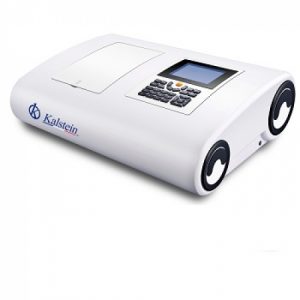A spectrophotometer is an analytical instrument that allows measuring in a sample the properties of reflectance or light transmittance, at different wavelengths of the visible spectrum, from 400 mm to 700 mm.
The measurement of light reflected or transmitted at many points in the visible spectrum, allows the construction of a curve. The curve of each color sample is unique, making it a valuable tool for color identification and specification. Nowadays, spectrophotometers are the instruments most used to evaluate this variable and manufacturers of nail polish are not the exception.
Nail polish is a lacquer that contains ingredients such as solvents, resins, plasticizers, suspension agents, filler additives, and colorants. Typically, nail polish is produced in a variety of colors and finishes, such as transparent, metallic, and pearly.
For enamel manufacturers, color is a fundamental aspect to achieve a successful marketing of their products and, sometimes, a color can be linked to the identity of the company.
The great importance of color in the production of nail polish requires that manufacturers carry out rigorous color quality controls, with the aim of ensuring the accuracy of color and batch consistency. Usually, color quality control is done with spectrophotometers.
Nail polish manufacturers today use special effects colors, with additives such as mica and pearls, that promote changes in texture and shine. These colors feature an optical phenomenon called goniochromism or iridescence, which causes certain surfaces to appear to change color gradually as the angle of view or angle of illumination changes. The measurement of this type of colors requires the use of multiangle spectrophotometers.
What is a multiangle spectrophotometer?
Multiangle spectrophotometers are instruments used to measure and characterize the goniochromism of special effects pigments in many materials that have a metallic, pearly, sparkling, or bright visual appearance.
These devices measure the apparent gonium color from the spectral relative reflectance factor and L*a*b* values of the sample at different illumination and observation angles.
These equipment are very useful in the manufacture of enamels with effects finishes, as the appearance of these products is influenced by different viewing angles and viewing conditions.
Importance of color control during the manufacture of nail polish
The scaling of a color formulation derived from a laboratory without objective guidance based on numerical values, increases the risk of producing faulted batches due to subjective color analysis. Batches that do not meet the color standard, promote time losses and waste of materials that cannot be reused. For this reason, the execution of spectrophotometric measurements is an essential part of the nail polish manufacturing process.
Spectrophotometers convert spectral information into quantitative data. These objective color values allow manufacturers color accuracy and batch consistency assessment. In addition, the device can be integrated into the production line, allowing operators to evaluate color in real time.
There are other circumstances that may cause a change in the formulated color. For example, aspects related to raw materials such as solvents, resins and dyes can cause slight alterations in the color of a mixture. In addition, the presence in the mixing chamber or injection hoses of waste from previous batches may contaminate a new batch.
Although the spectrophotometer will not prevent these problems, you can perform a color check before the product reaches the bottling phase. Similarly, the evaluation with the spectrophotometer allows obtaining information about the part of the process where the problem occurred. For example, with the detection of excess colors from previous batches.
Kalstein spectrophotometers
At Kalstein we offer a wide variety of table and portable spectrophotometers of the YR series, whose characteristics depend on the model you choose. In the case of table equipment, facilitate the configuration of several standard curves, according to the solutions being analyzed, allows the determination of the concentration of unknown solutions. These devices can display 5 on-screen results such as wavelength, absorption and transmittance. Offer memory storage of up to 200 results. In addition, they are designed with a 2.5-inch LCD screen that allows clear viewing of standard curves and groups of results. They also feature a deuterium lamp that ensures high photometric accuracy and is easy to replace. For more information on Kalstein spectrophotometers, please visit HERE


